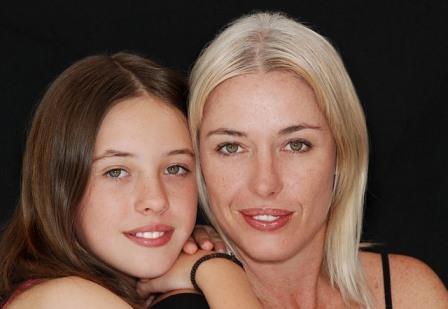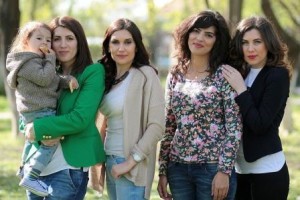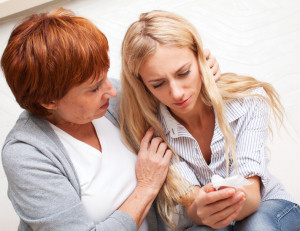- Calls to this hotline are currently being directed to Within Health, Fay or Eating Disorder Solutions
- Representatives are standing by 24/7 to help answer your questions
- All calls are confidential and HIPAA compliant
- There is no obligation or cost to call
- Eating Disorder Hope does not receive any commissions or fees dependent upon which provider you select
- Additional treatment providers are located on our directory or samhsa.gov
Finding a Mentor in Eating Disorder Recovery

Contributor: Kirsten Haglund, Community Relations Representative for Timberline Knolls and Founder and President of the Kirsten Haglund Foundation
For a family, the onset of an eating disorder in a loved one can be a difficult, even debilitating time. Full of questions, faced with new challenges, and little to no common knowledge about how to go about seeking quality behavior health care… families often feel they have no where to turn and are utterly alone.
Eating disorders not only isolate the individual struggling with one, but also the loved ones surrounding and supporting that person. However, we know that those who suffer are NOT alone: 30 million people in the U.S. struggle with eating disorders, and it is likely many more suffer in silence.
Finding Community
It is essential for a successful recovery to break out of this silence and isolation and find community. I will never forget the first time that I, as a survivor of anorexia, attended an eating disorder conference, and was surrounded by thousands of other survivors, their families and friends, other advocates and clinicians. I saw, clearly, that I had never been alone in my struggle – there was an entire community that existed to support, to love on, and to lift up those on the journey to healing.
Community is important, and on an even more individual level, mentoring can be incredibly helpful for those who are struggling. Here are a few ways to tap into the benefits of community and mentoring in the fight for recovery:
1. Get into Community
 Isolation feeds the eating disorder and the challenges it poses to families. It takes courage to step out into the open, to talk about issues, not only with one another, but with people at your church, your peer group or colleagues – but it is worth it. To begin, you might be opening the door for someone else to talk about their struggles, but also, it is helpful for you to talk about what is on your heart.
Isolation feeds the eating disorder and the challenges it poses to families. It takes courage to step out into the open, to talk about issues, not only with one another, but with people at your church, your peer group or colleagues – but it is worth it. To begin, you might be opening the door for someone else to talk about their struggles, but also, it is helpful for you to talk about what is on your heart.
Getting into community can mean attending local eating disorder meetings or groups, attending a conference, joining a counseling group at church, or volunteering with a local advocacy group. Whatever you do, make sure that you do not try to hide in shame or guilt. Instead, there is great strength to be found in reaching out, and through vulnerability, inspiring others to do the same.
2. What Makes a Good Mentor?
 If you are the individual struggling, one consideration may be to include a mentor to your treatment team on your recovery journey. I would like to emphasize the word “include,” as mentor should never replace a therapist or any other member of the treatment team. Sometimes a mentor is helpful in initiating the treatment process, and can offer insight and support through the admissions process or step down care.
If you are the individual struggling, one consideration may be to include a mentor to your treatment team on your recovery journey. I would like to emphasize the word “include,” as mentor should never replace a therapist or any other member of the treatment team. Sometimes a mentor is helpful in initiating the treatment process, and can offer insight and support through the admissions process or step down care.
A good mentor is one who provides guidance, compassion, and care, and can help the individual navigate the treatment process and be another accountability partner. They can be a valuable listening ear, and should always recommend resources and point to licensed professionals for further counseling and follow up. The best mentors provide love and support, are 100 percent recovered themselves, and always recommend professional help if their skills in a certain area are lacking.
3. Families Also Need Mentors
Lastly, families, especially parents, can benefit from mentoring relationships as well. Parents often can feel the most alone, and while parent support groups are helpful, it can really make a difference to be able to talk with parents that have already been through the struggle and have come out on the other side.
 Again, as with individual mentoring, parents should find mentors whose loved one is fully recovered, and can help the parents navigate the process of healing. They often can provide valuable information as to resources available, and can be tremendously helpful in assuaging guilt, surrounding the parents with support, and helping them discover new truths about their family and their life.
Again, as with individual mentoring, parents should find mentors whose loved one is fully recovered, and can help the parents navigate the process of healing. They often can provide valuable information as to resources available, and can be tremendously helpful in assuaging guilt, surrounding the parents with support, and helping them discover new truths about their family and their life.
Mentors and the community play vital roles in recovery. Eating disorders do not occur in a vacuum, and they cannot be beaten in one either. It takes a strong support team and mentors can be a big part of that. Do not hesitate to reach out for help and support, and consider a healthy, strong, and caring mentoring relationship as a part of the treatment process. When it has proper boundaries and keeps the focus on health and healing, these relationships can be some of the most beautiful and wonderful things about the recovery journey.
Community Discussion – Share your thoughts here!
Where have you found community in recovery from an eating disorder?
 About the author: Kirsten Haglund continues to work as an advocate for greater awareness of eating disorders and resources for care. Since she won the crown of Miss America 2008, she has spoken on numerous college campuses, worked with youth and church groups domestically and abroad, lobbied Congress with the Eating Disorders Coalition, and started her own non-profit, the Kirsten Haglund Foundation, to raise funds and assist families financially in seeking treatment for eating disorders. She is also the Community Relations Specialist for Timberline Knolls Residential Treatment Center.
About the author: Kirsten Haglund continues to work as an advocate for greater awareness of eating disorders and resources for care. Since she won the crown of Miss America 2008, she has spoken on numerous college campuses, worked with youth and church groups domestically and abroad, lobbied Congress with the Eating Disorders Coalition, and started her own non-profit, the Kirsten Haglund Foundation, to raise funds and assist families financially in seeking treatment for eating disorders. She is also the Community Relations Specialist for Timberline Knolls Residential Treatment Center.
The opinions and views of our guest contributors are shared to provide a broad perspective of eating disorders. These are not necessarily the views of Eating Disorder Hope, but an effort to offer discussion of various issues by different concerned individuals.
We at Eating Disorder Hope understand that eating disorders result from a combination of environmental and genetic factors. If you or a loved one are suffering from an eating disorder, please know that there is hope for you, and seek immediate professional help.
Last Updated & Reviewed By: Jacquelyn Ekern, MS, LPC on April 26, 2016
Published on EatingDisorderHope.com

The EatingDisorderHope.com editorial team comprises experienced writers, editors, and medical reviewers specializing in eating disorders, treatment, and mental and behavioral health.

